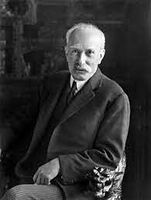William Edward Soothill
| PersonType | Category:Translators |
|---|---|
| FirstName / namefirst | William |
| LastName / namelast | Soothill |
| namemiddle | Edward |
| MainNamePhon | William Edward Soothill |
| SortName | Soothill, William |
| bio | William Edward Soothill, FRGS (1861 – 1935) was a Methodist missionary to China who later became Professor of Chinese at University College, Oxford, and a leading British sinologist.
Born in Halifax, Yorkshire in January 1861, Soothill matriculated at London University. He entered the ministry of the United Methodist Free Church arriving in China in 1882 and spent 29 years as a missionary in Wenzhou, China. Another leading missionary there until 1909 was Grace Stott who led the China Inland Mission there. Soothill founded a hospital, a training college, schools and 200 preaching stations. In 1911 Soothill became President of the Imperial University at Shansi. Upon his return to England in 1920 he was appointed the Shaw Professor of Chinese at Oxford University, becoming a Fellow of University College, Oxford. In 1921, he was awarded the Order of Wen-Hu (third class) by the Republic of China in recognition of services rendered in connection with the Chinese Labour Corps in France. In 1926 he was a member of Lord Willingdon's delegation to China on the settlement of the Boxer Rebellion indemnities. He is best known for his translation into English of the Analects of Confucius and his Dictionary of Chinese Buddhist Terms with Sanscrit and English Equivalents. He married Lucy Farrar in 1884. She wrote an account of their years in China entitled A Passport to China. (Source Accessed June 8, 2021) |
| IsInGyatsa | No |
| Other wikis |
If the page does not yet exist on the remote wiki, you can paste the tag |

